 Gwilym Simcock (born 24 February 1981) is a Welsh pianist and composer working in both jazz and classical music, and often blurring the boundaries of the two.
Gwilym Simcock (born 24 February 1981) is a Welsh pianist and composer working in both jazz and classical music, and often blurring the boundaries of the two.
Simcock was chosen as one of the 1000 Most Influential People in London by the Evening Standard. He was featured on the front cover of the August 2007 issue of the UK’s leading Jazz journal Jazzwise Magazine.
Simcock was born in Bangor, Gwynedd. At the age of eleven he attained the highest marks in the country for his Associated Board Grade 8 exams – on both piano and French horn. He went on to study classical piano, French horn and composition at Chetham’s School, Manchester, where he was introduced to jazz by pianist and teacher Les Chisnall and bassist and teacher Steve Berry. He went on to study jazz piano at The Royal Academy of Music, London with John Taylor, Nikki Iles, Nick Weldon and Geoff Keezer.
He graduated from the Royal Academy of Music with a first-class honours degree and the “Principal’s Prize’ for outstanding achievement. Whilst at the Royal Academy of Music he studied with many renowned musicians including Milton Mermikides.

In 2008 he was commissioned to perform at The Proms at the Royal Albert Hall in London. He composed a Piano Concerto “Progressions” which he performed with his trio and the BBC Concert Orchestra on 9 August 2008, broadcast live on BBC2 TV.
On 5 October 2008 he was featured in an evening at the King’s Place Opening Festival in which he performed four concerts leading four different groups including a duo with John Taylor.
In 2006 he was the first jazz musician to be selected for the BBC Radio 3 New Generation Artists scheme, and this was extended to 2008. It involved numerous recordings that were broadcast on BBC Radio 3 as solo performances, and his trio appearance at the Wigmore Hall during the London Jazz Festival 2006 (broadcast 7 July 2007).
His trio, which has performed at festivals and venues worldwide such as the North Sea Jazz Festival 2007, now features James Maddren (drums) and Yuri Goloubev (bass), while his debut album featured Stan Sulzmann, John Parricelli, Phil Donkin, Martin France and Ben Bryant. He was chosen by Chick Corea for a solo concert performance and live recording at Klavier Festival Ruhr 2007. This concert was broadcast on WDR radio and 20,000 copies were given away as a cover mount CD in Germany’s leading music magazine Fonoforum.

In 2011 his album Good Days At Schloss Elmau was one of the twelve nominees for the Mercury Music Prize, ultimately losing to PJ Harvey’s Let England Shake.[2]
He was a member of Tim Garland’s Lighthouse Trio, however left in 2013 being replaced by John Turville. He was a member of Malcolm Creese’s Acoustic Triangle, Stan Sulzmann’s Neon, and Bill Bruford’s Earthworks. He has also played with musicians including Dave Holland, Lee Konitz, Bob Mintzer, Bobby McFerrin, Kenny Wheeler, Iain Ballamy, Julian Argüelles, Pete King, Don Weller, Steve Waterman, and Torsten de Winkel / New York Jazz Guerrilla. He is a founder member of The Impossible Gentlemen.
He also plays French horn[3] and has played with the National Youth Jazz Orchestra (NYJO), the BBC Big Band, and with Kenny Wheeler on his 2003/2005 tour.
In recent times he has been on tour with legendary US guitarist Pat Metheny in a quartet featuring Linda Oh and Antonio Sanchez. (wikipedia)

And here´s his second solo-album:
And the album launched his new trio with extraordinary, classically trained Russian bassist Yuri Goloubev and young UK drum star James Maddren as well as documenting Gwilym’s emerging voice as a solo pianist. The first CD offers a mix of stunning improvisations and new Simcock compositions as well as insightful interpretations of Grieg’s Piano Concerto and the popular tune “On Broadway”. It also provides a brief window into the mind of a composer who mixes classical and jazz without effort, with a recording of a suite for cello and piano originally written for the opening of London’s newest venue King’s Place. Classical cellist Cara Berridge features on this work. The trio CD is a stunning mix of Simcock compositions and brilliant interpretations of great classics such as “Black Coffee” and “Cry Me A River”.
As Gwilym himself says “recording an album is like taking a photograph. An album is a document of a specific moment in time, a vignette, an insight into the stage that one as a musician has reached. This album marks both the beginning of a fresh journey with a new trio, and documents my continuing quest towards finding an individual voice as a solo pianist”.
He goes on to say: “All of this music is neither ‘Jazz’ nor ‘Classical’. It is just music, and the type of music that interests and stimulates me. What I feel is important in music is lyricism, subtlety and clarity in harmonic and rhythmic movement, and an overall sense of an emotional connection with the listener, whatever the context of the music may be”. (press release)

“The first of this double CD collection is a wonderful display of Simcock’s gifts as a solo pianist as well as his talents as a composer in jazz and classical idioms”. (Ray Comiskey, The Irish Times)
“Just when you thought the piano could go no further in jazz one emerges to raise the bar of invention and virtuosity still higher. On this recording Gwilym Simcock seems to have breached a dam of inhibition and let loose a flood of music that is truly exhilarating”. (Helen Mayhew, JazzFM)
“Gwilym Simcock’s latest Blues Vignette (Basho) adds to the British pianist’s growing reputation is an ambitious double album deftly covering both solo and trio formats with some vivid originals evoking Jarrett and Bill Evans while skilfully straddling the classical and jazz hemispheres”. (James McGowan, Tribune)

“Simcock is certainly going to open some eyes and ears in North America with this ambitious release, which demonstrates why this still young musician and composer is starting to be mentioned as being among the very best in the world” (JazzChicago.net)
“The balance Simcock achieves between compositional structure and improvisation is the thread which runs through the trio numbers and is the unifying strand between the two CDs. Each is an inseparable part of Simcock’s emerging musical identity. It will be fascinating to see how this trio develops over time, for its potential is clearly great. Undoubtedly one of the year’s most satisfying releases”. (Ian Patterson, Allaboutjazz)
“Simcock’s imagination really does seem to flow freely across classical and jazz without noticing the joins. Simcock, Goloubev and James Maddren celebrate the trio tradition of Bill Evans and Keith Jarrett on some vivid originals here – and the young leader sounds as if he’s wearing his immense knowledge more lightly, yet using it more incisively, than ever before”. (John Fordham, The Guardian)
And I add a small booklet with more reviews.

Personnel:
Yuri Goloubev (bass)
James Maddren (drums)
Gwilym Simcock (piano)
+
Cara Berridge (cello on 09. + 10.)

Tracklist:
CD 1:
01. Little People (Simcock) 6.56
02. Exploration On Mvt II Of Grieg Piano Concerto (Simcock) 8.33
03. On Broadway (Mann/Weil) 4.14
04. Improvisation I – Statues (Simcock) 3.05
05. Improvosation II – Letter To The Editor (Simcock) 3.49
06. Improvisation III – Be Still Now (Simcock) 4.04
07. Caldera (Simcock) 9.38
08. Jaco And Joe (Simcock) 9.20
09. Suite For Cello And Piano Part 1 – Kinship (Simcock) 14.56
10. Suite For Cello And Piano Part 2 – Homeward (Simcock) 6.04
CD 2:
01. Introduction (Simcock) 4.45
02. Tundra (Simcock) 7.04
03. Blues Vignette (Simcock) 8.11
04. Black Coffee (Burke) 5.22
05. Longing To Be (Simcock) 12.16
06. Nice Work If You Can Get It (Gershwin) 6.35
07. Cry Me A River (Hamilton) 8.05
08. 1981 (Simcock) 8.29

*
**

More from Gwilym Simcock:

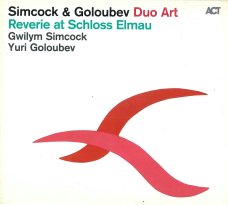 Two great musicians:
Two great musicians: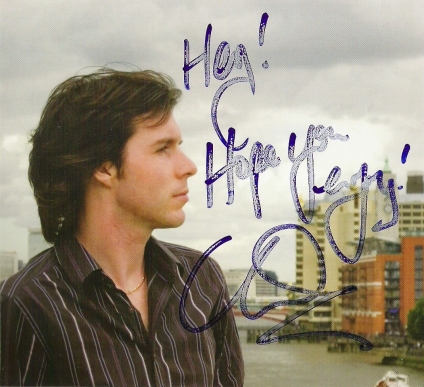
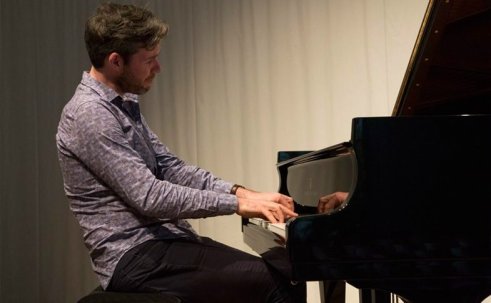
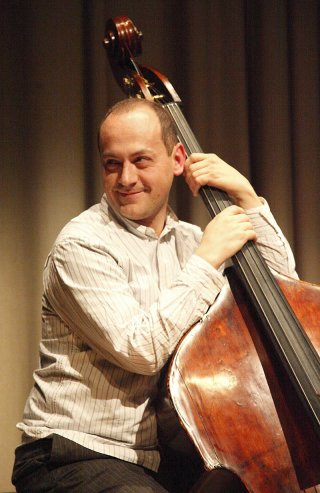
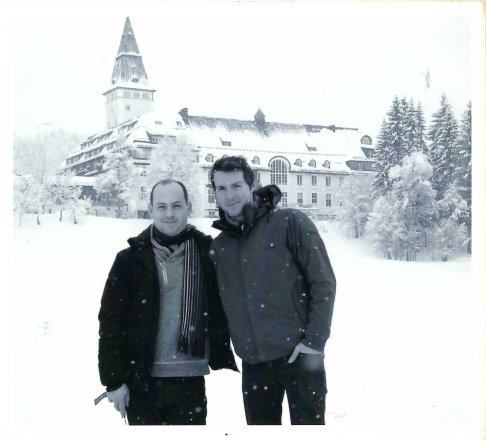

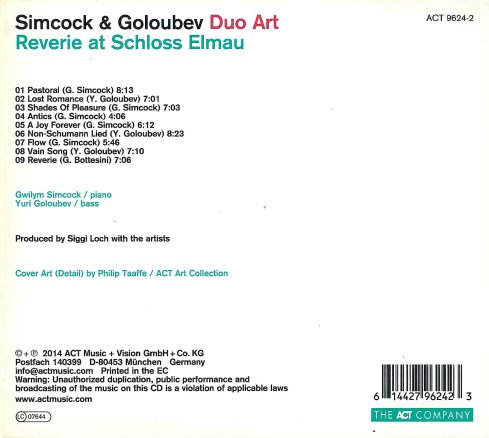
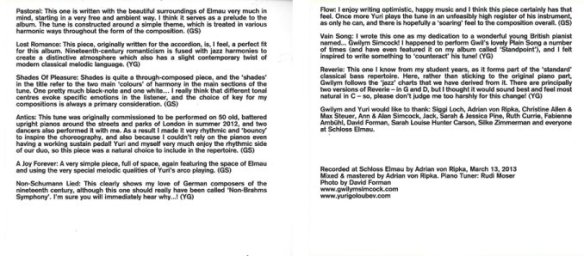
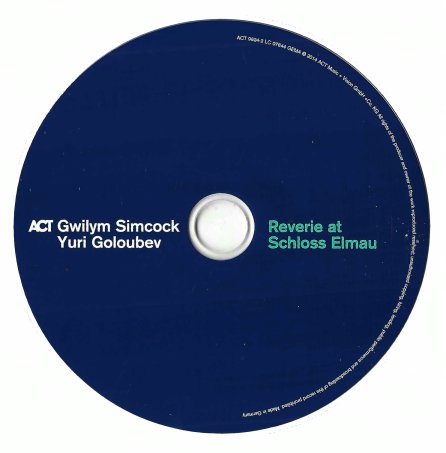
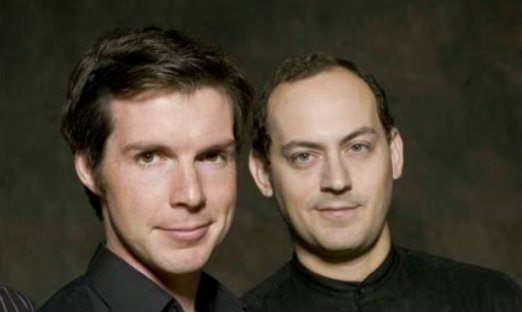


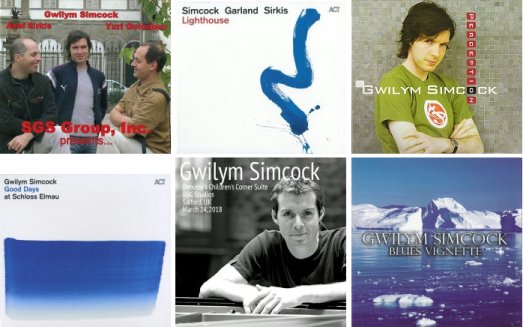

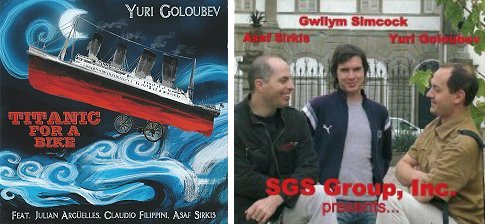


 Gwilym Simcock (born 24 February 1981) is a Welsh pianist and composer working in both jazz and classical music, and often blurring the boundaries of the two.
Gwilym Simcock (born 24 February 1981) is a Welsh pianist and composer working in both jazz and classical music, and often blurring the boundaries of the two.









 Gwilym Simcock has carved out a career as one of the most gifted pianists and imaginative composers on the European scene. The Briton moves effortlessly between jazz and classical music, with a ‘harmonic sophistication and subtle dovetailing of musical traditions’. Gwilym has been hailed as a pianist of ‘exceptional’, ‘brilliant’ and ‘dazzling’ ability, and his music has been widely acclaimed as ‘engaging, exciting, often unexpected, melodically enthralling, complex yet hugely accessible’, and above all ‘wonderfully optimistic’.
Gwilym Simcock has carved out a career as one of the most gifted pianists and imaginative composers on the European scene. The Briton moves effortlessly between jazz and classical music, with a ‘harmonic sophistication and subtle dovetailing of musical traditions’. Gwilym has been hailed as a pianist of ‘exceptional’, ‘brilliant’ and ‘dazzling’ ability, and his music has been widely acclaimed as ‘engaging, exciting, often unexpected, melodically enthralling, complex yet hugely accessible’, and above all ‘wonderfully optimistic’.



 When Chick Corea calls you a creative genius, you know you’re on to something. Praise like this is nothing new to UK piano whiz kid Gwilym Simcock, though.
When Chick Corea calls you a creative genius, you know you’re on to something. Praise like this is nothing new to UK piano whiz kid Gwilym Simcock, though.









 This Anglo-American supergroup could be seen as a canny way of raising the international profile of two of Britain’s most inventive jazz musicians.
This Anglo-American supergroup could be seen as a canny way of raising the international profile of two of Britain’s most inventive jazz musicians.


